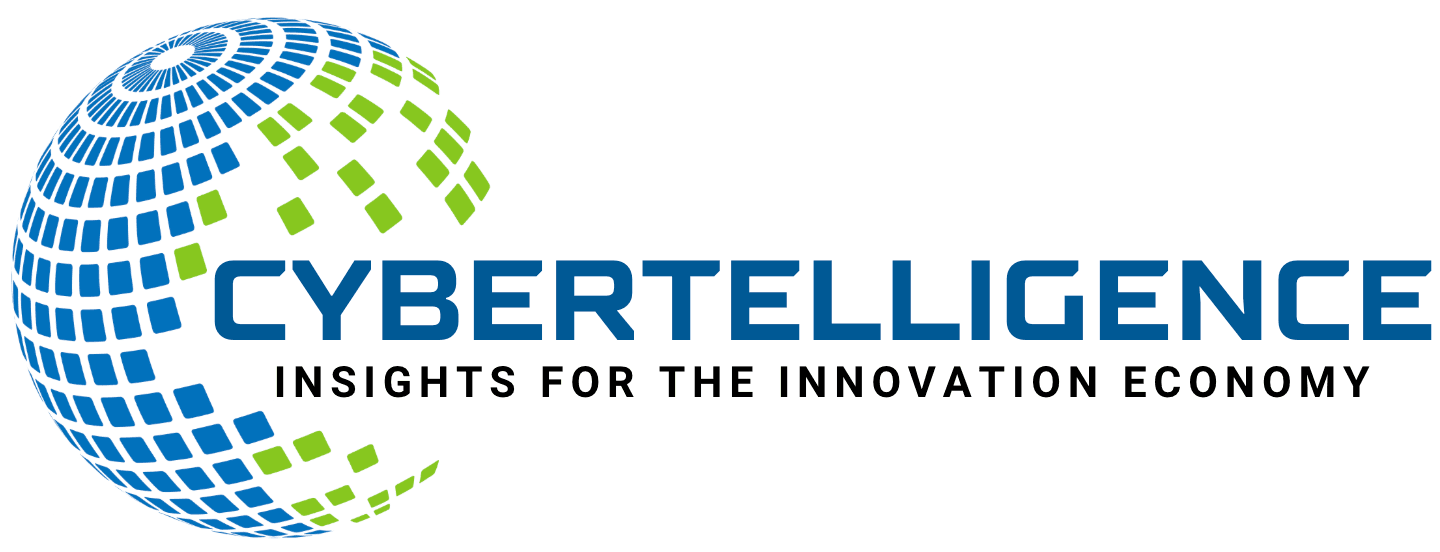Smart contracts are a revolutionary concept that has emerged from the world of blockchain technology. At their core, smart contracts are self-executing contracts with the terms of the agreement directly written into code. This means that once the conditions specified in the contract are met, the contract automatically executes the agreed-upon actions without the need for intermediaries.
You can think of them as digital agreements that operate on a decentralized network, ensuring transparency and security. The idea was first introduced by computer scientist Nick Szabo in the 1990s, but it gained significant traction with the advent of blockchain platforms like Ethereum. As you delve deeper into the world of smart contracts, you will discover that they are not just limited to financial transactions.
They can be applied across various industries, automating processes and reducing the need for human intervention. This automation can lead to increased efficiency and reduced costs, making smart contracts an attractive option for businesses and individuals alike. By understanding the fundamental principles behind smart contracts, you can better appreciate their potential to transform traditional contractual agreements into more streamlined and reliable processes.
Key Takeaways
- Smart contracts are self-executing contracts with the terms of the agreement directly written into code.
- The benefits of smart contracts include increased efficiency, reduced costs, and improved transparency and security.
- Smart contracts work by automatically enforcing the terms of an agreement when predefined conditions are met.
- Implementing smart contracts in business can streamline processes, reduce human error, and enhance trust between parties.
- Smart contracts have the potential to revolutionize the legal system by automating contract execution and dispute resolution.
The Benefits of Smart Contracts
One of the most significant advantages of smart contracts is their ability to enhance efficiency. Since these contracts are executed automatically when predetermined conditions are met, you can eliminate delays associated with manual processing. This speed not only saves time but also reduces operational costs, allowing businesses to allocate resources more effectively.
Additionally, smart contracts minimize the risk of human error, as they rely on code rather than manual input, ensuring that transactions are executed precisely as intended. Another key benefit is the increased level of security that smart contracts provide. By utilizing blockchain technology, these contracts are stored on a decentralized ledger that is nearly impossible to alter or hack.
This inherent security feature fosters trust among parties involved in a transaction, as you can be confident that the terms of the contract will be honored without the risk of tampering. Furthermore, the transparency offered by blockchain allows all parties to verify the contract’s execution in real-time, creating a more trustworthy environment for business dealings.
How Smart Contracts Work

To understand how smart contracts function, it is essential to grasp the underlying technology that powers them—blockchain. When you create a smart contract, you write code that outlines the specific conditions and actions required for execution. This code is then deployed onto a blockchain network, where it becomes part of a distributed ledger accessible to all participants.
When the conditions specified in the contract are met, the code automatically executes the agreed-upon actions, such as transferring assets or updating records. The process begins with defining the terms of the contract in a programming language compatible with the blockchain platform you are using. Once deployed, the smart contract operates autonomously, meaning it does not require any further input from you or any other party involved.
This self-executing nature is what sets smart contracts apart from traditional contracts, which often rely on intermediaries to enforce compliance and execute terms. By eliminating these middlemen, smart contracts streamline processes and reduce costs associated with contract management.
Implementing Smart Contracts in Business
| Metrics | Data |
|---|---|
| Cost Savings | 20-50% reduction in operational costs |
| Efficiency | 30-60% increase in process efficiency |
| Transparency | Improved transparency and auditability |
| Security | Enhanced security and reduced fraud |
| Speed | Faster transaction processing |
As you consider implementing smart contracts in your business operations, it is crucial to identify areas where they can add value. Start by analyzing your current processes and pinpointing tasks that are repetitive or prone to errors.
Once you have identified potential use cases, it is essential to collaborate with developers who have experience in blockchain technology and smart contract programming. They can help you design and deploy contracts tailored to your specific needs. Additionally, consider conducting pilot projects to test the effectiveness of smart contracts in your operations before fully integrating them into your business model.
This approach allows you to assess their impact on efficiency and cost savings while minimizing risks associated with implementation.
Smart Contracts in the Legal System
The legal system stands to benefit significantly from the adoption of smart contracts. Traditional legal agreements often involve lengthy negotiations and complex documentation processes that can be time-consuming and costly. By utilizing smart contracts, legal professionals can streamline these processes, making it easier for clients to enter into agreements quickly and efficiently.
You may find that this shift not only reduces legal fees but also enhances client satisfaction due to faster turnaround times. Moreover, smart contracts can improve transparency within the legal system. With all terms and conditions encoded on a blockchain, parties involved in a legal agreement can easily access and verify the contract’s contents at any time.
This transparency can help reduce disputes and misunderstandings, as all parties have access to the same information. As you explore this intersection between technology and law, consider how smart contracts could reshape traditional legal practices and create new opportunities for innovation within the field.
Security and Trust in Smart Contracts

Security is a paramount concern when it comes to any digital transaction, and smart contracts are no exception. However, one of their most appealing features is their ability to enhance security through blockchain technology. Since smart contracts are stored on a decentralized ledger, they are less vulnerable to hacking or fraud compared to traditional systems that rely on centralized databases.
As you engage with smart contracts, you can feel more secure knowing that your agreements are protected by robust cryptographic measures. Trust is another critical element in any contractual relationship. With smart contracts, trust is built into the system itself rather than relying solely on interpersonal relationships or third-party verification.
The transparency provided by blockchain allows all parties to monitor contract execution in real-time, fostering confidence that each party will fulfill their obligations as outlined in the agreement. This shift towards automated trust can significantly reduce disputes and enhance collaboration among parties involved in a transaction.
Potential Risks and Challenges of Smart Contracts
Despite their many advantages, smart contracts are not without risks and challenges. One significant concern is the potential for coding errors or vulnerabilities within the contract itself. If there is a flaw in the code, it could lead to unintended consequences or financial losses for one or more parties involved.
As you consider implementing smart contracts, it is crucial to invest time in thorough testing and auditing of the code before deployment to mitigate these risks. Another challenge lies in the legal recognition of smart contracts across different jurisdictions. While some countries have begun to embrace blockchain technology and recognize smart contracts as legally binding agreements, others remain hesitant or lack clear regulations governing their use.
This uncertainty can create complications for businesses operating internationally or across state lines. As you navigate this landscape, staying informed about evolving regulations will be essential for ensuring compliance and minimizing legal risks associated with smart contract implementation.
Smart Contracts in Real Estate
The real estate industry is ripe for disruption through the adoption of smart contracts. Traditionally characterized by lengthy processes involving multiple stakeholders—such as buyers, sellers, agents, and lenders—real estate transactions can be cumbersome and time-consuming. By utilizing smart contracts, you can streamline these processes significantly.
For example, once a buyer meets specific conditions (such as securing financing), a smart contract could automatically execute the transfer of ownership without requiring extensive paperwork or manual intervention. Additionally, smart contracts can enhance transparency in real estate transactions by providing a clear record of ownership history and transaction details on a blockchain ledger. This transparency can help reduce fraud and disputes over property ownership while also simplifying due diligence processes for buyers and sellers alike.
As you explore opportunities within this sector, consider how integrating smart contracts could lead to more efficient transactions and improved trust among all parties involved.
Smart Contracts in Supply Chain Management
In supply chain management, efficiency and transparency are paramount for success. Smart contracts offer a powerful solution by automating various processes within the supply chain ecosystem. For instance, when goods are shipped from one location to another, a smart contract can automatically trigger payments upon delivery confirmation or completion of specific milestones along the supply chain journey.
This automation reduces delays associated with manual processing while ensuring that all parties fulfill their obligations promptly. Moreover, implementing smart contracts in supply chain management enhances traceability and accountability throughout the entire process. With every transaction recorded on a blockchain ledger, you can easily track products from their origin to their final destination.
This level of visibility not only helps prevent fraud but also enables businesses to respond quickly to issues such as recalls or disruptions in supply chains. As you consider adopting smart contracts within your supply chain operations, think about how they could improve efficiency while fostering greater trust among partners.
The Future of Smart Contracts
As technology continues to evolve rapidly, so too does the potential for smart contracts to reshape various industries further. In the coming years, we may witness increased integration of artificial intelligence (AI) with smart contracts, allowing for even more sophisticated automation and decision-making capabilities. Imagine a future where AI algorithms analyze vast amounts of data to determine optimal contract terms or predict potential risks before they arise—this could revolutionize how businesses operate.
Governments may begin recognizing these digital agreements as legally binding instruments, paving the way for more widespread use in areas such as finance, healthcare, and beyond. As you look ahead at this exciting landscape filled with possibilities, consider how staying informed about emerging trends will position you for success in leveraging smart contracts effectively.
Tips for Successful Implementation of Smart Contracts
To ensure successful implementation of smart contracts within your organization or industry sector, start by conducting thorough research on existing use cases relevant to your needs. Understanding how others have successfully integrated these technologies can provide valuable insights into best practices and potential pitfalls to avoid along the way. Next, prioritize collaboration with experienced developers who specialize in blockchain technology and smart contract programming languages like Solidity or Vyper.
Their expertise will be instrumental in designing robust solutions tailored specifically for your requirements while minimizing risks associated with coding errors or vulnerabilities. Finally, consider establishing clear guidelines around governance structures related to managing changes or updates made to deployed smart contracts over time—this will help maintain consistency while ensuring compliance with evolving regulations within your jurisdiction. By following these tips and remaining proactive about learning opportunities within this rapidly changing landscape surrounding smart contracts, you’ll be well-positioned for success as you navigate this transformative technology’s potential benefits across various industries!
Smart contracts are revolutionizing the way transactions are conducted by automating and securing agreements using blockchain technology. As we explore the future of smart contracts, it’s essential to consider the broader landscape of artificial intelligence and its integration with other technologies. A related article that delves into the advancements in AI is titled “ChatGPT-5: Bridging the Gap Between Humans and Machines with Advanced Conversational AI.” This article discusses the latest developments in conversational AI, which could potentially enhance the functionality and user interaction of smart contracts. For more insights, you can read the full article here.
FAQs
What are smart contracts?
Smart contracts are self-executing contracts with the terms of the agreement between buyer and seller directly written into code. They automatically enforce and facilitate the terms of the contract, without the need for intermediaries.
How do smart contracts work?
Smart contracts work by using blockchain technology to automatically execute and enforce the terms of an agreement. Once the conditions of the contract are met, the smart contract is automatically executed, without the need for human intervention.
What are the benefits of smart contracts?
Some benefits of smart contracts include increased efficiency, reduced costs, improved security, and elimination of the need for intermediaries. Smart contracts also provide transparency and immutability, as all transactions are recorded on the blockchain.
What are some use cases for smart contracts?
Smart contracts can be used in a variety of industries and applications, including supply chain management, real estate transactions, insurance claims processing, and financial services. They can also be used for voting systems, gaming, and decentralized applications (dApps).
What are the potential drawbacks of smart contracts?
Some potential drawbacks of smart contracts include the need for careful and precise coding, potential security vulnerabilities, and the lack of legal precedent and regulation in some jurisdictions. Additionally, smart contracts may not be suitable for all types of agreements and transactions.




